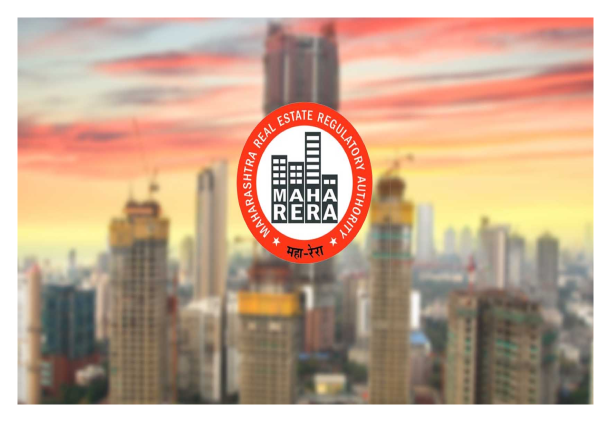It’s not easy to purchase a flat for the first time in Pune, especially on your own. Several factors should be considered, such as price, location, EMI burden, neighborhood, amenities, distance from the office, etc. It can be challenging to foresee how a place will change. Their objective is to make us believe that every neighborhood has a lot of potential, that there will soon be six new schools and a dozen new tech parks nearby, and that investing in a home in what they’re suggesting will have virtually no downside!
Uncertainty, however, is the issue for a home buyer. Often, infrastructure projects are delayed, new tech parks are not built, and the roads are frequently flooded, defeating the whole purpose of investing in an “up and coming” area.
This is when purchasing a flat off-market makes sense. A resale property is one where the seller is a homeowner rather than a builder; the seller has already lived in or rented out the property and is considering selling it. Many people are wary of purchasing a resale flat in Pune because they believe it might be full of issues. While there are workarounds for this, let’s examine the benefits and drawbacks of purchasing a resale flat in Pune.
Benefits of purchasing a resale flat in Pune
When it comes to purchasing a home that is ready to move into, resale properties are considered more financially viable due to several factors, including the property’s age, the asset’s final cost, depreciation over time, the need for renovations, etc. There are numerous advantages to purchasing a resale apartment, including the following, regardless of what motivates you.
Save on tax
You will pay less tax if you purchase a resale flat in Pune. You are eligible for a tax exemption of up to Rs. 1 lakh under the Income Tax Act (Section 80C of the Income Tax Act allows for on-principal EMI). A tax deduction of up to Rs. 5 lakh is also available for home loan interest under Section 24B.
Moving in ready
You don’t need to wait for the building to be finished or stress about connecting your internet, cable, gas, etc. These facilities will all be available. The previous owners likely already have almost everything in a house that you’ll need to install and make functional.
Location
These older homes may be found in the city’s older neighborhoods. On the outskirts of cities, as well as in newer or developing areas, are new apartments. These areas are thoughtfully designed and already have everything you could want nearby.
Drawbacks of purchasing a resale flat in Pune
The limited appreciation of resale apartments is a big issue. Compared to resale apartments, new apartments increase in value much faster in the first few years. When purchasing a resale flat in Pune, you pay the increased value! However, moving in and starting to live in the apartment is your main priority.
The limited appreciation of resale apartments is a big issue. Compared to resale apartments, new apartments increase in value much faster in the first few years. When purchasing a resale flat in Pune, you pay the increased value! However, moving in and starting to live in the apartment is your main priority.
Factors to consider before purchasing a resale flat in Pune
When purchasing a resale apartment, there are many things to watch out for. Among them are:
Rules and regulations
There is always an association that controls what happens in society if you purchase a flat there. The type of modifications that can be made to the house you are buying has to be confirmed with them. Some societies will have regulations governing the kinds of renovations permitted, the times that may be done, etc. Check with the building association for permission before searching for a home that needs significant renovations.
Down payment and homeowners insurance
When purchasing a resale flat in Pune, you should be aware that the insurance payout will be less than it might be if you had to buy a brand-new residence. For a resale flat, you must put down a minimum of 20%, higher than the down payment required for brand-new homes.
Pending dues
An essential thing to look for is all unpaid debts that the home’s owners are still paying. Late utility bills, such as those for water or maintenance, may be considered a debt. In some cases, the owner might not be willing to provide this information.
When was the property built?
The question is: how old is too old? It is best to avoid any land at least 40-50 years old. At this point, you might have noticed significant structural damage to the home and building. You need to spend more money than planned because of the necessary remodeling and the additional repairs.
Essential documents to see before purchasing a resale flat in Pune
A house, apartment, flat, villa, or other resale property can’t be purchased without property documentation. When buying a resale flat, the following documents are required for resale flat registration:
- The primary legal document is the sales deed.
- The building plan will tell you if the structure has been sanctioned and approved.
- The occupancy certificate certifies that the building is fit for human habitation.
- Certificate of Encumbrance: the house has no liabilities.
- Tax Receipts: There are no outstanding tax payments, and everything is current.
- Access to all previously registered agreements under the Mutation Deed
- NOC: Certificate of No Objection
- Possession Certificate: from the builder to the owner and finally to you.
What are the charges for purchasing a resale flat in Pune?
The bank does not typically factor in stamp duty and registration fees when you purchase a resale apartment. Stamp duty on a resale flat typically ranges between 5% of the gross transaction value with a registration fee of Rs. 30,000/-
Hiring the right team to assist you may appear to be a waste of money, but when these fundamentals are not in order, you may cause far less.








